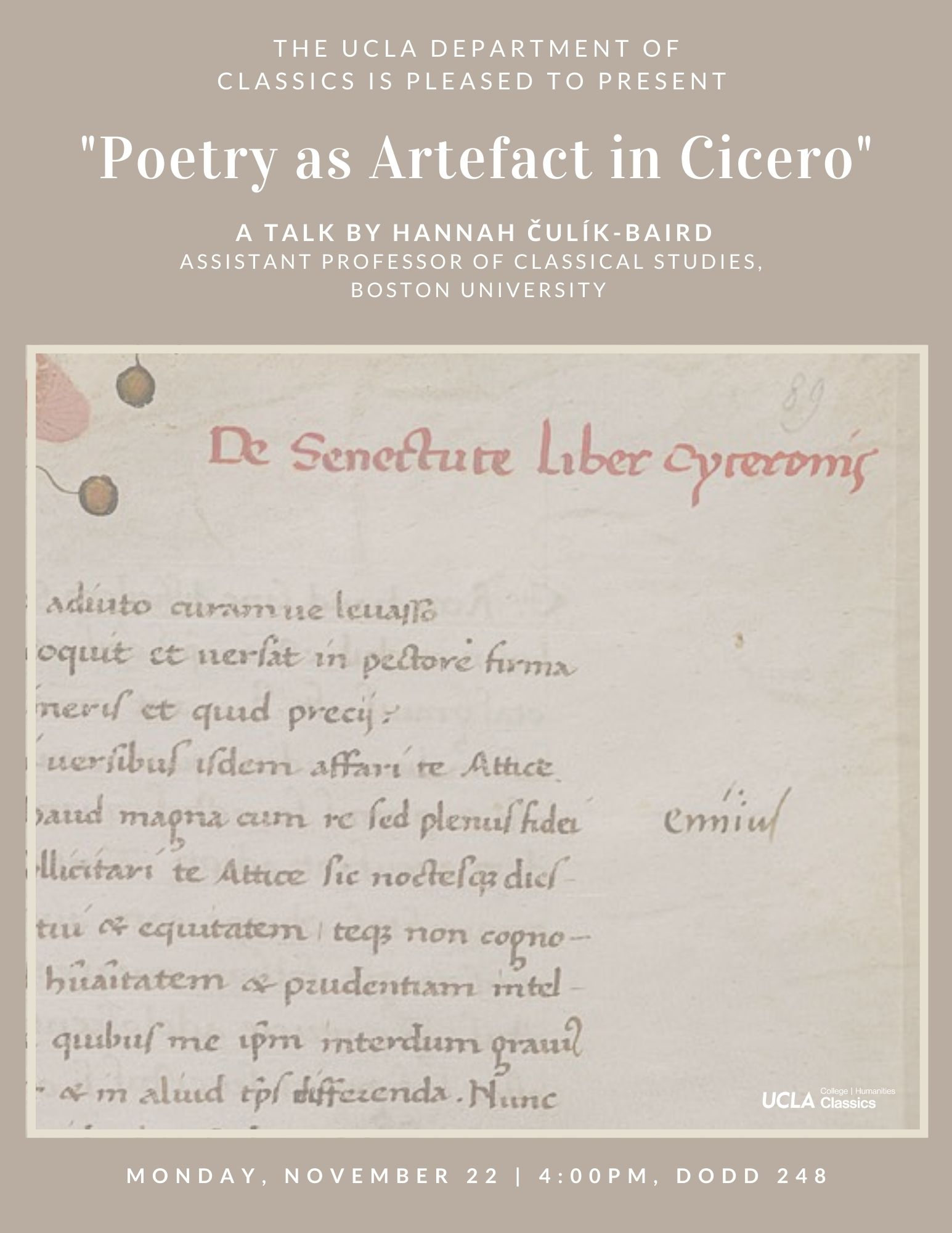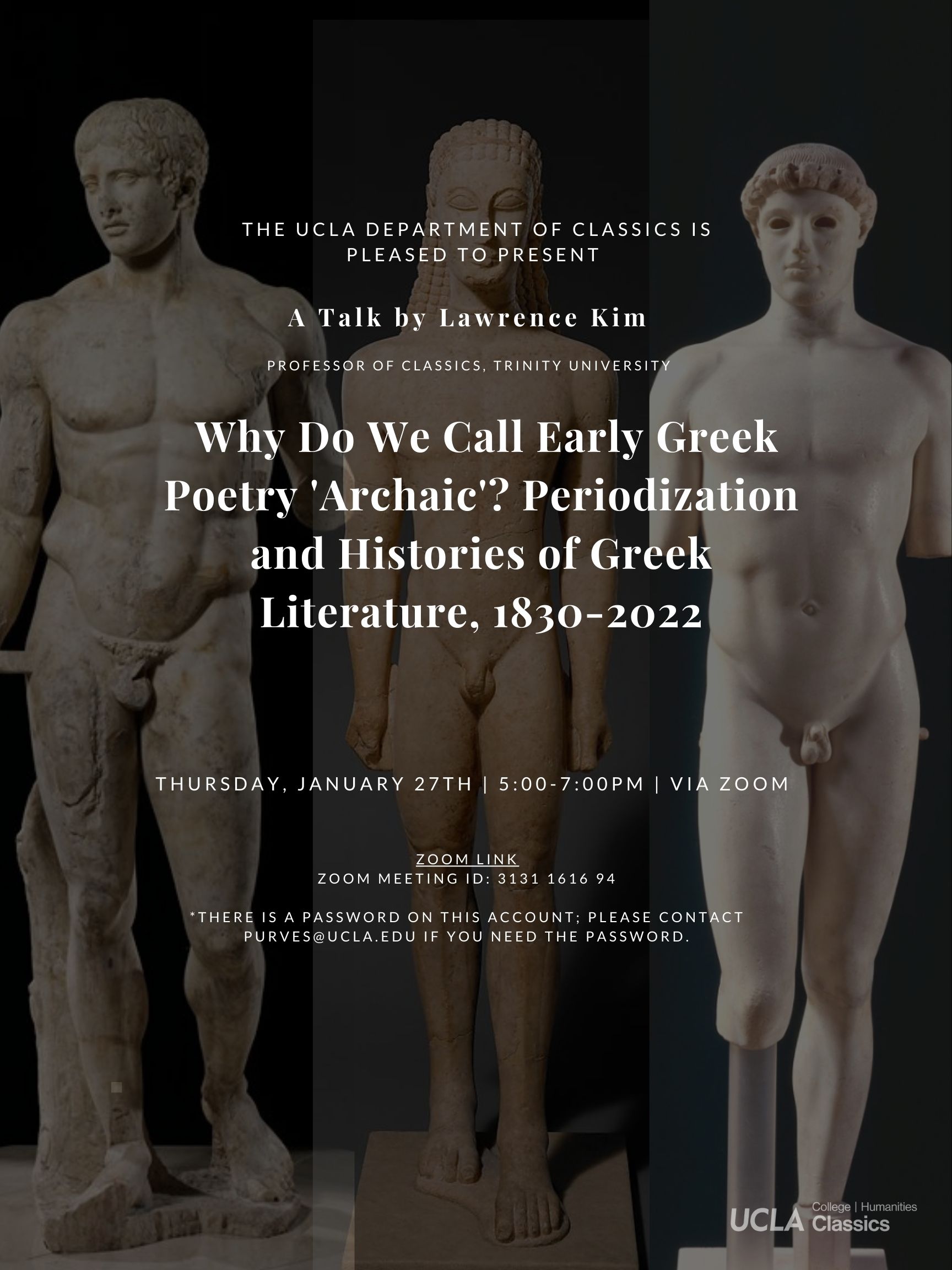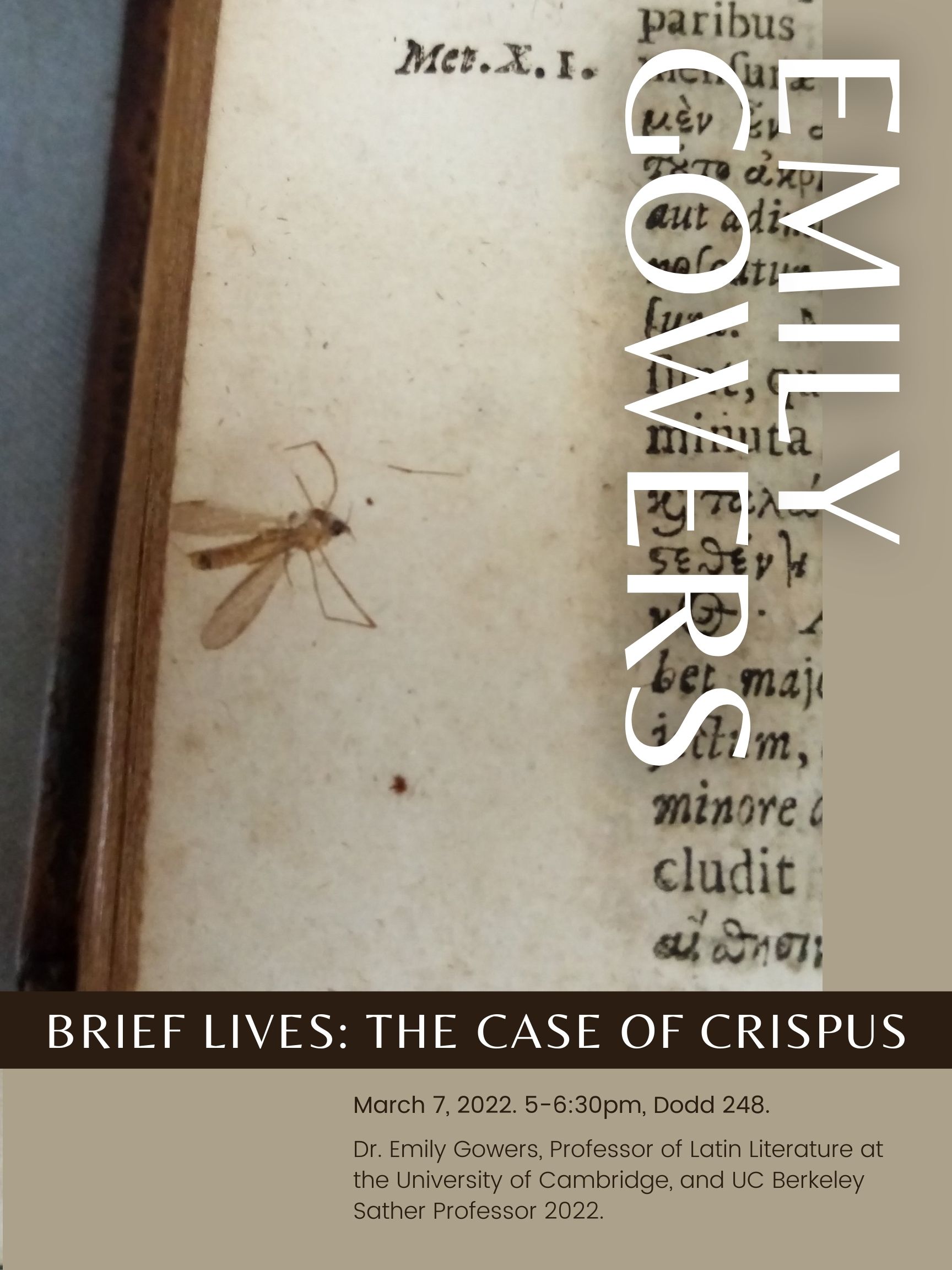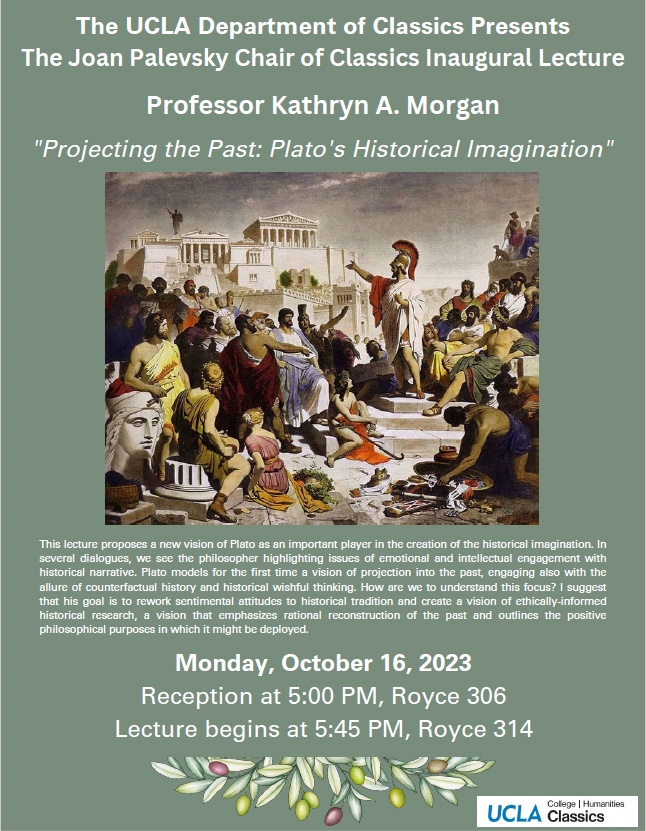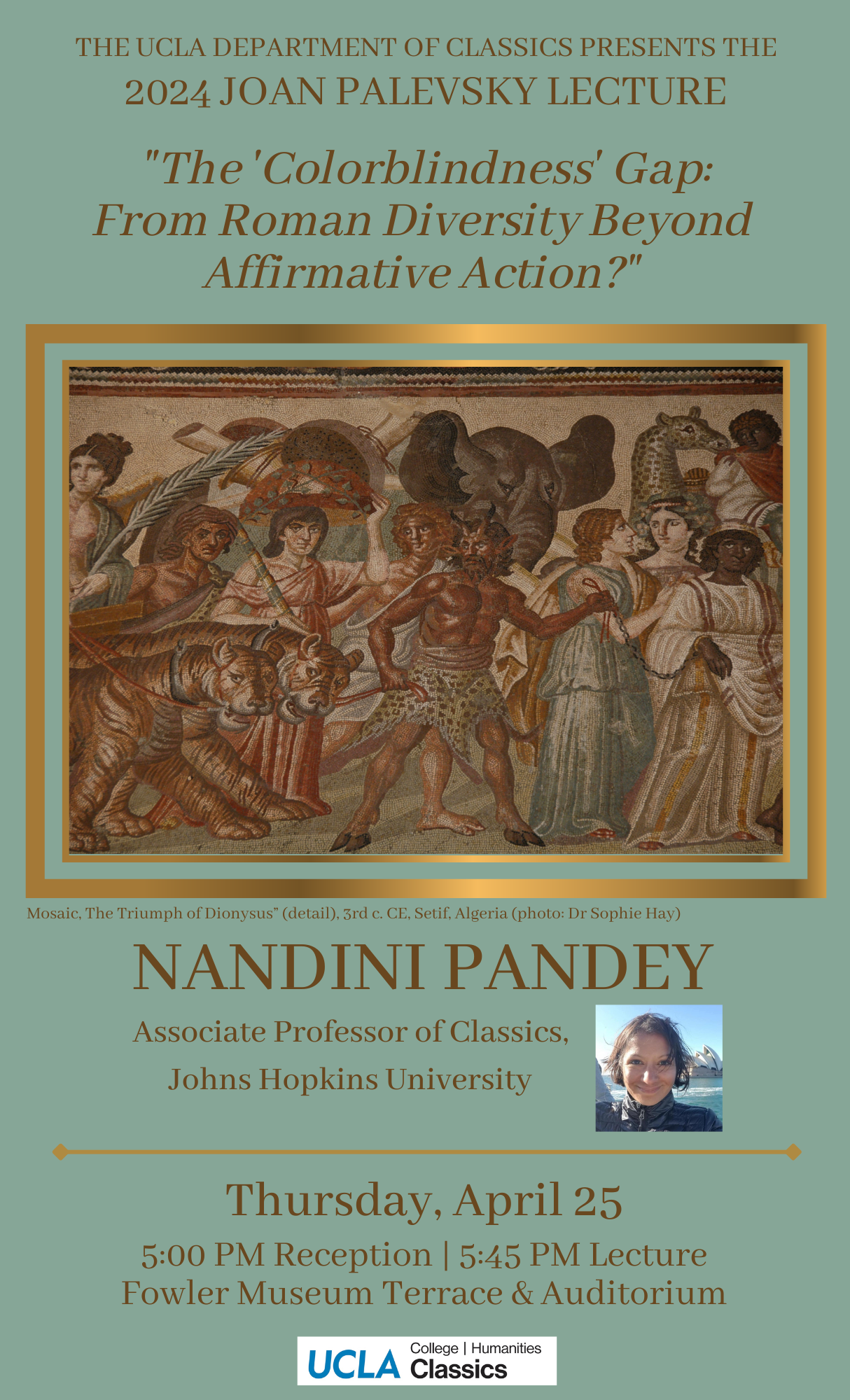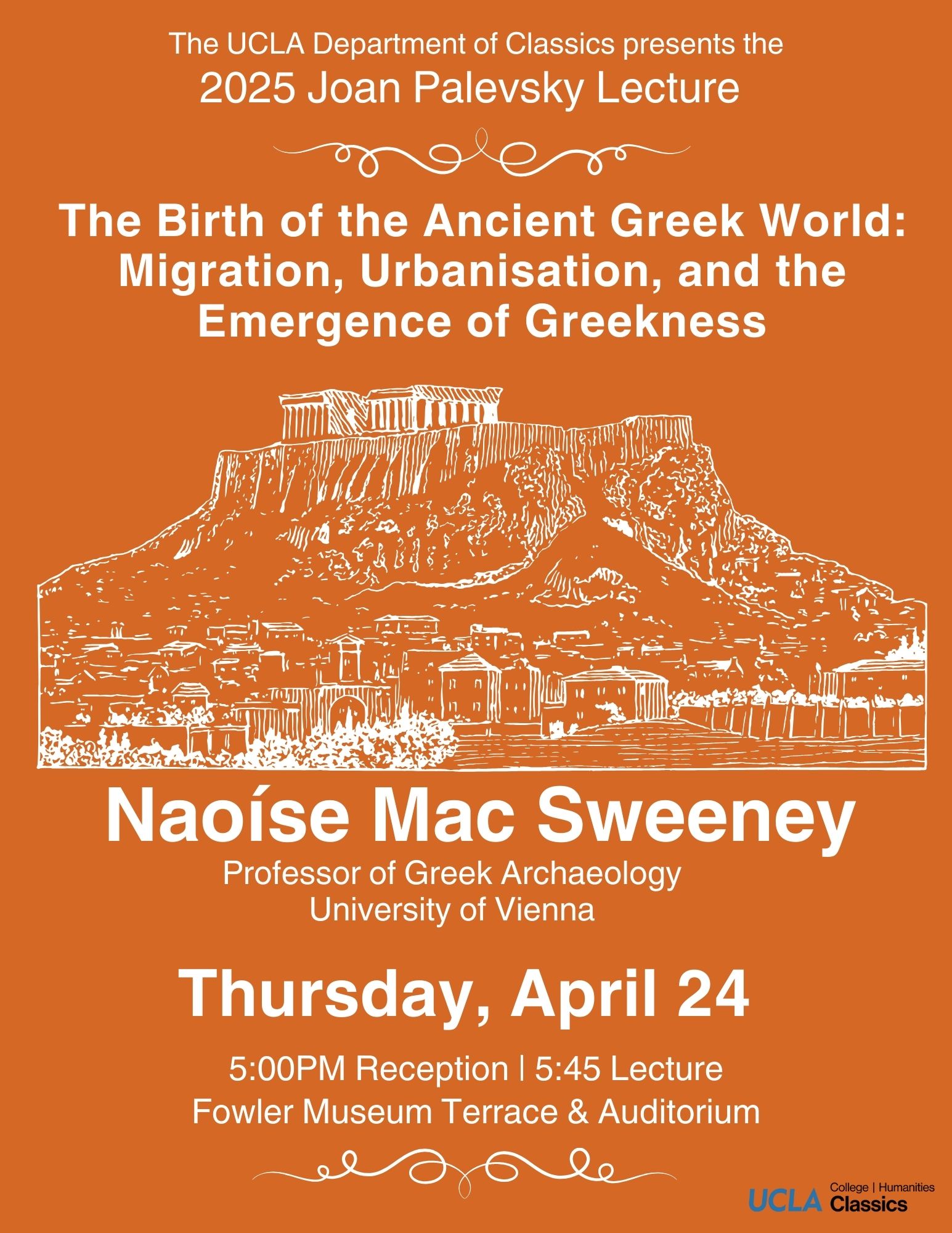
MA Paper and SCS Presentations
We are delighted to invite you to come and hear one MA paper and two SCS practice papers, delivered by our graduate students, in Dodd 248 on Tuesday, December 7th from 3-5 pm. Our presentations will be: Patrick Callahan (MA paper): "Pliny's Epistolary Feast." Jasmine Akiyama-Kim (SCS paper): "Odysseus’s Two Bodies: Recognition as Construction in Odyssey 19."...
Lawrence Kim | “Why Do We Call Early Greek Poetry ‘Archaic’? Periodization and Histories of Greek Literature, 1830-2022”
ZoomZoom Link | Zoom Meeting ID: 3131 1616 94 *There is a password on this account; please contact purves@ucla.edu if you need the password.
Elliott Piros | Purple Motion: Pantomime Dance in Martial’s Epigrams
This event will be held in person and on zoom. For in-person non-UCLA attendees, please note UCLA policy for visitors here. All attendees must take the UCLA Covid Symptom Monitoring Survey, show proof of vaccination or a negative covid test, and wear a surgical or N/K95 mask (no cloth masks). To join by Zoom, please...
Emily Gowers | Brief Lives: The Case of Crispus
For inquiries about attending this lecture on zoom, please contact purves@g.ucla.edu
Maria Wyke | “Feminizing Ancient Rome: Women at the Cinema from the 1900s to the 1920s”
Audio / Visual Romans I Thursday April 20th 2023 Annual UCLA Joan Palevsky Lecture Professor Maria Wyke, University College London "Feminizing Ancient Rome: Women at the Cinema from the 1900s to the 1920s" The medium of the moving image started out as part of variety programmes and women often appeared in it advertising to men...
Film Screening of Cajus Julius Caesar (1914) with live accompaniment and original score by Michele Sganga
James Bridges Theater 235 Charles E Young Dr E, Los Angeles, CAAudio / Visual Romans II Friday April 21st 2023 Film Screening with Live Accompaniment and Original Score by Michele Sganga Cajus Julius Caesar, 1914. Directed by Enrico Guazzoni A live screening at UCLA’s James Bridges Theater of the rarely seen yet remarkable Italian silent feature film Cajus Julius Caesar (1914, dir. Enrico Guazzoni) brought over especially from...
The Joan Palevsky Chair of Classics Inaugural Lecture, Mon. Oct. 16
Royce Hall 314 10745 Dickson Plaza, Los Angeles, CAThe UCLA Department of Classics Presents The Joan Palevsky Chair of Classics Inaugural Lecture on Monday, October 16, 2023 Professor Kathryn Morgan will present her talk entitled Projecting the Past: Plato's Historical Imagination in Royce 314 at 5:45 PM. Please join us for a reception prior to the lecture in Royce 306 at 5 PM. ...
Nandini Pandey | “The Colorblindness Gap: From Roman Diversity Beyond Affirmative Action?”
Fowler MuseumAnnual UCLA Joan Palevsky Lecture Professor Nandini Pandey, Johns Hopkins University “The Colorblindness Gap: From Roman Diversity Beyond Affirmative Action?“
Naoíse Mac Sweeney | “The Birth of the Ancient Greek World: Migration, Urbanisation, and the Emergence of Greekness?”
Fowler MuseumAnnual UCLA Joan Palevsky Lecture Professor Naoíse Mac Sweeney, University of Vienna "The Birth of the Ancient Greek World: Migration, Urbanisation, and the Emergence of Greekness?" Lecture summary: By the start of the classical period, the Greek world stretched from Spain to Cyprus, and from Libya to the Crimea, and was comprised of over 1,000 autonomous polities. In...

